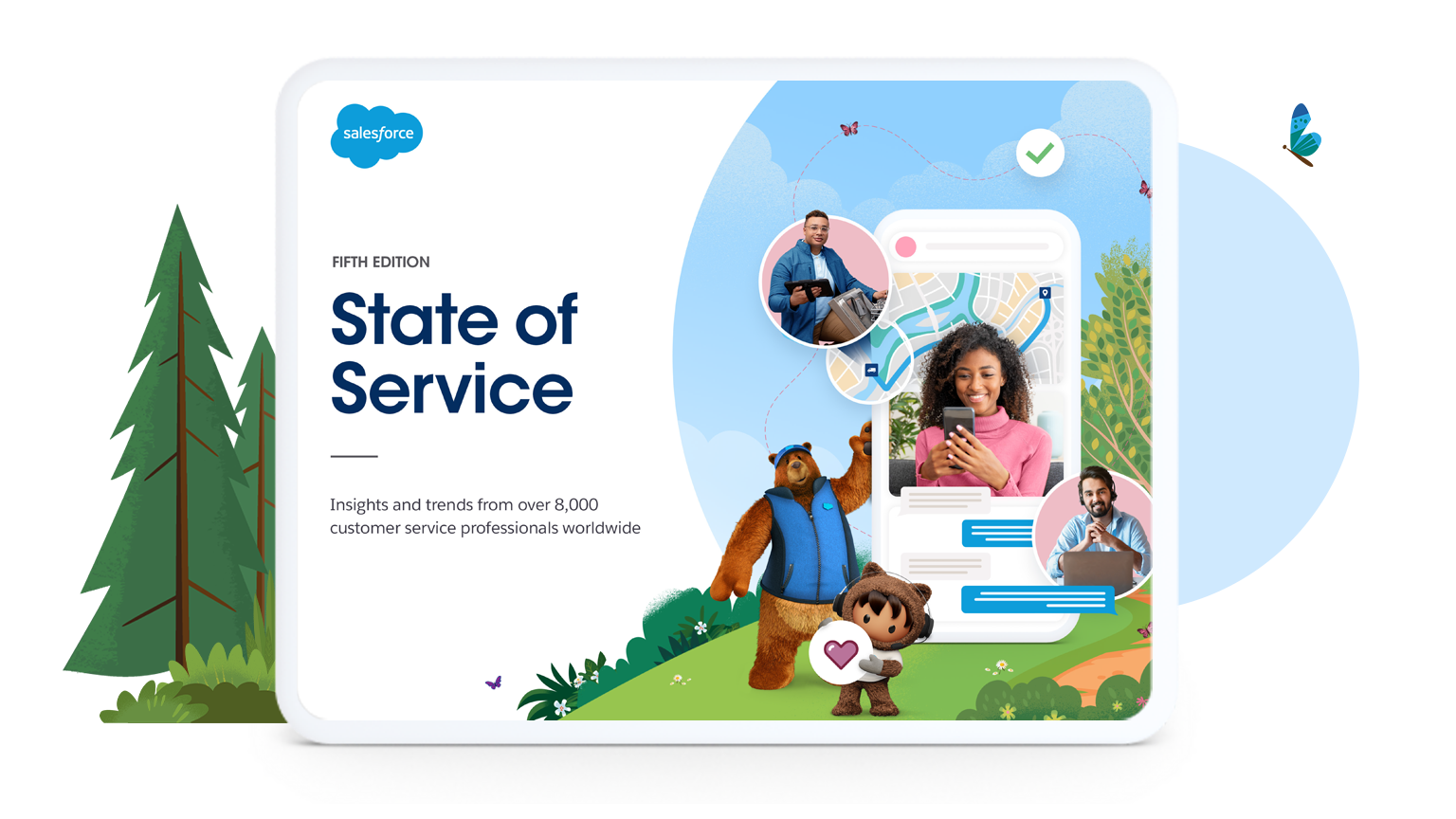Customers expect both speed and quality when seeking customer service and support, which is adding new pressures to a 61% rise in case volume in South Africa. Yet despite economic headwinds, many South African companies are recognising the value of investing in an area that touches every aspect of their business. And it’s a good job too: 67% of customer service professionals in South Africa say expectations have increased since before the pandemic – and show no signs of slowing down.
Good customer service can be the difference between brand trust and loyalty, and the hassle that has them heading for the hills. For B2B brands, it’s what maintains solid relationships in sales and delivers on the promises of marketing. It’s therefore no surprise that in South Africa, 46% of customer service professionals say their number of staff has increased over the past year as they meet this new demand. But headcount is only a small part of the issue.
When cost savings are in the spotlight, how can companies turn customer service into a revenue generator that constantly propels productivity? Many are turning their focus to their customer service agents as the answer. If they’re empowered to do a good job, the simple fact is, they will.
Want a look at the bigger picture in customer service? Head over to our State of Service report. Otherwise, read on to find out what’s going on in South Africa’s customer service landscape.
State of Service Report
Learn how service organisations continue to adapt to an even more digital-first environment, and how teams are increasing efficiency and productivity in the face of economic uncertainty.

Unsurprisingly, 89% of South African service professionals say there’s a direct link between employee experience and customer experience. And at a time when service is increasingly linked to success, this isn’t something to overlook.
It’s also critical for a wavering job market:
- 88% say retaining existing employees is a challenge.
- 93% have trouble filling vacant roles.
Who’s getting customer service right?
African technology company Yoco Technologies has turned the Small Business payments model on its head. To deliver great customer experiences, it realised it needed a well-defined customer journey. Enter Salesforce. Using Service Cloud and Marketing Cloud, Yoco has moved from a reactive support model to a proactive one. Slack has also helped revolutionise the customer experience, ensuring conversions and automating workflows.
“It’s easy when you’re smaller to give great service to ten merchants, but when you’re acquiring close to thousands of merchants a month, you need to have a well-defined customer journey to stay consistent in delivering great customer experiences.” Ronald Makomba, Head of Customer Success, YOCO Technologies
Empower agents to rise to the occasion
Agent empowerment is firmly on the agenda in South Africa. Why? Because confident and capable customer service professionals make for happier customers. And this tactic is working. Some 89% of professionals say their customer service agents see themselves as brand ambassadors. Gone are the days of ‘desk monkeys’ with no engagement with the wider business. Agents are critical team members – and you should make sure they know it.
For the majority, this is in full flow:
- 85% of agents have a clear path for career growth.
- 76% feel empowered by management to treat customers with empathy.
This paints an incredibly positive picture of what investment in agents can do to customer success, especially when times are tight. So, how are organisations achieving these results?
Offer new perks (without a crippling price tag)
While customer expectations have increased since the pandemic, so have employee expectations. Service organisations have been equally affected by the ‘Great Resignation’ in the labour market. In response, South Africa has seen a boost in perks that offer more flexibility and rewards to retain employees and keep them engaged.
Since the pandemic, 69% of employees can choose where they work and over half (52%) now have flexible schedules. Improved career opportunities (50%) have also been a popular choice to help with staff retention. These benefits don’t necessarily come with a hefty price tag, and could even boost productivity – which is undoubtedly why they’ve been popular at a time of increasing costs.
However, a significant minority have gone even further. Over a third (38%) have offered their employees increased pay, and 37% increased time off. Many have also recognised that happy customers require happy agents, with 50% offering wellness benefits. We’ll cheer our green tea to that.
Upskill your teams
However, it’s not just a good benefits package that keeps agents sticking around. Investing in both hard and soft skills is a clear trend for South African service organisations as empowerment tops the agenda. Some 88% of service organisations make significant investments in agent training, and this is paying off big time. When retention is a worry, it makes sense to prioritise training new employees and actively working to advance existing agents on the career ladder.
The good
- 71% say they have advanced product knowledge.
- 68% say they have advanced attention to detail and listening skills.
The not-so-good
Empathy and adaptability are the least advanced skills across South African organisations:
- Empathy (54%)
- Adaptability (57%)
But help is at hand to bridge any knowledge gaps: 72% say self-service employee resources are available for training on new products and services, and 70% on new tech. Independent learning is a great way to foster autonomy and confidence. As companies look at cutting costs and driving new efficiencies, a flexible, self-serve approach will become even more central to customer success.
This company is getting service right, too
Coca-Cola Peninsula Beverages has been serving Coca-Cola products to businesses in South Africa’s Western Cape region for over 80 years. Using a combination of Sales Cloud and Service Cloud, the company has rebuilt its Customer Service Centre to give every agent a 360-view of every customer. Empowering their agents to have organic and empathetic conversations from the moment they connect with customers.
“Now with Service Cloud, our customers log requests with our ticketing system and every agent has a 360 view of every customer at their fingertips. We’re resolving more cases faster than ever.” Christina Rodrigues Bester, Commercial Process Analyst, Coca-Cola Peninsula Beverages
Shine a spotlight on service for better engagement and better results
Service organisations in South Africa have seen an average 28% turnover rate over the past year, a number that’s only set to rise if retention isn’t a priority. Indeed, 22% of agents plan to switch jobs within the next 18 months. At a time of exponential customer expectations and economic uncertainty, this could spell disaster.
But, when 68% of management views customer service as a revenue generator, the answer is clear. Empowered agents creating a positive employee experience are going to drive new efficiencies. If South African service organisations give them the right tools, benefits, and flexibility to do a great job, the road to customer success and a rise in revenue won’t be far off.
State of Service Report
Learn how service organisations continue to adapt to an even more digital-first environment, and how teams are increasing efficiency and productivity in the face of economic uncertainty.

























